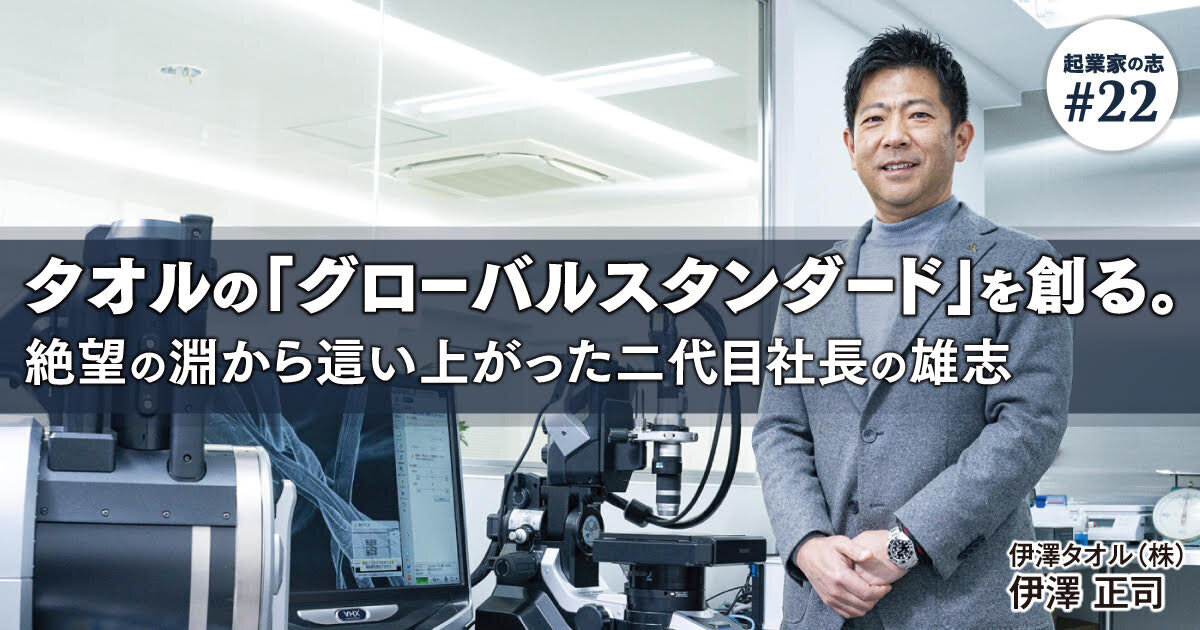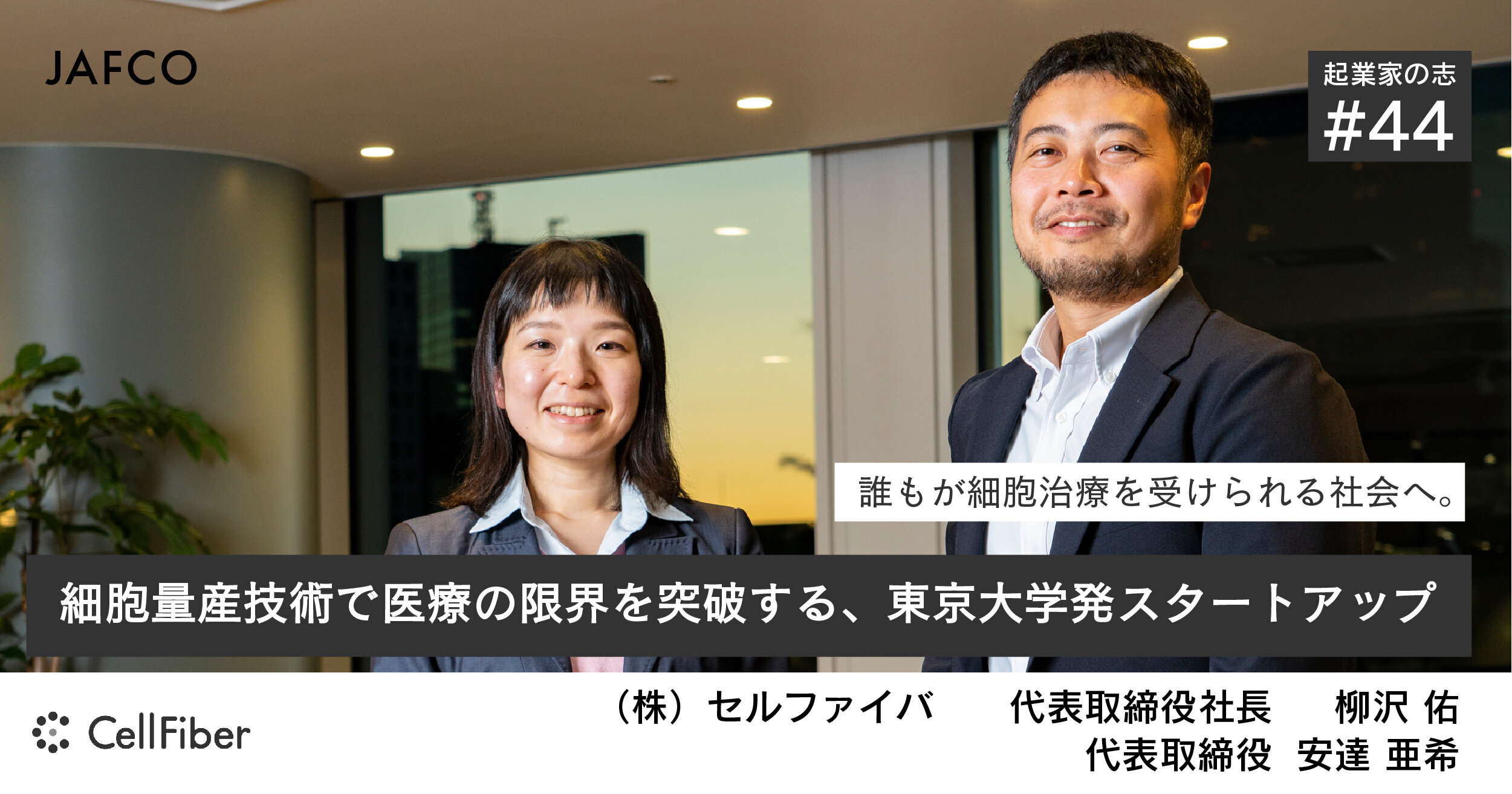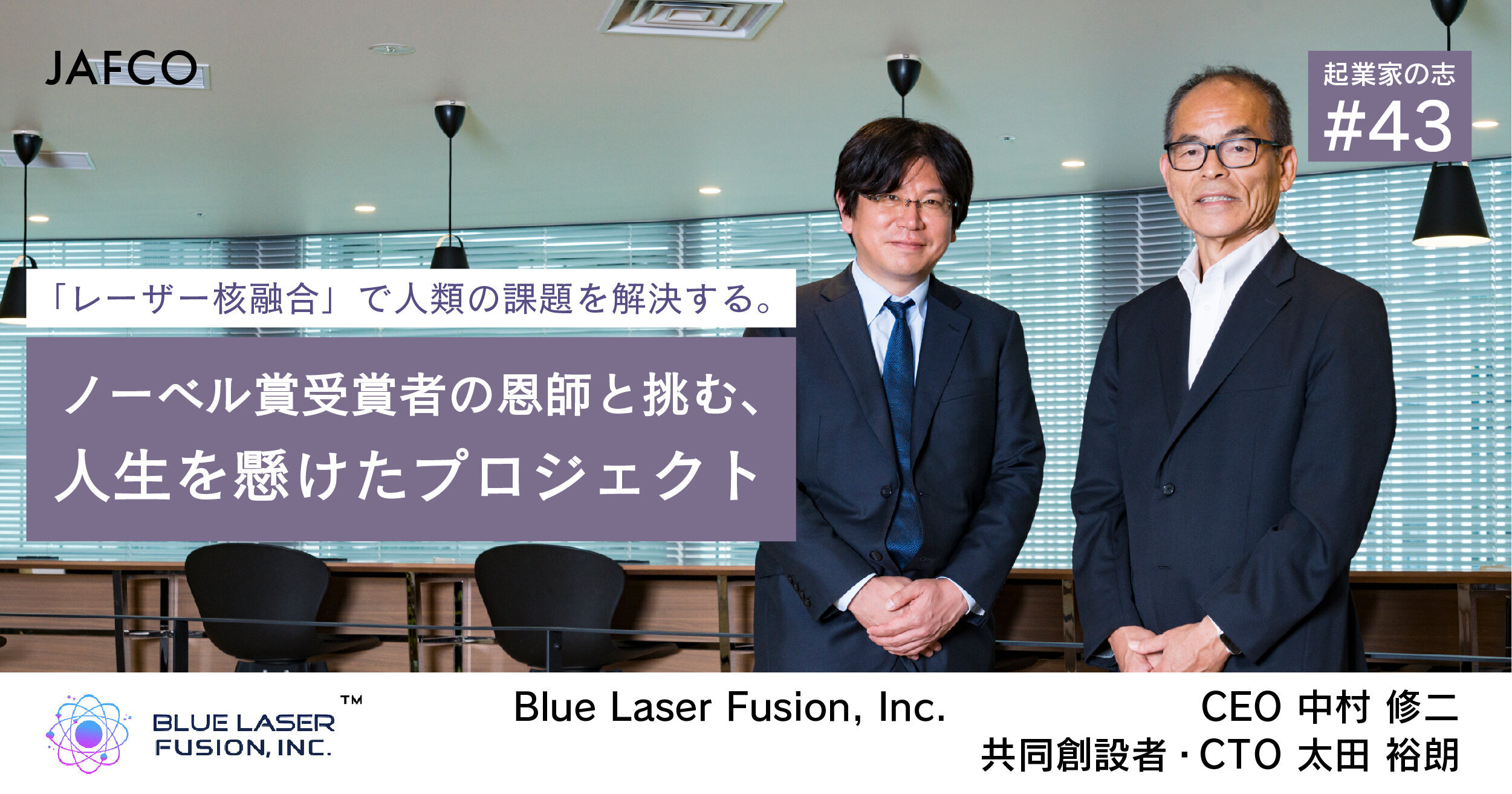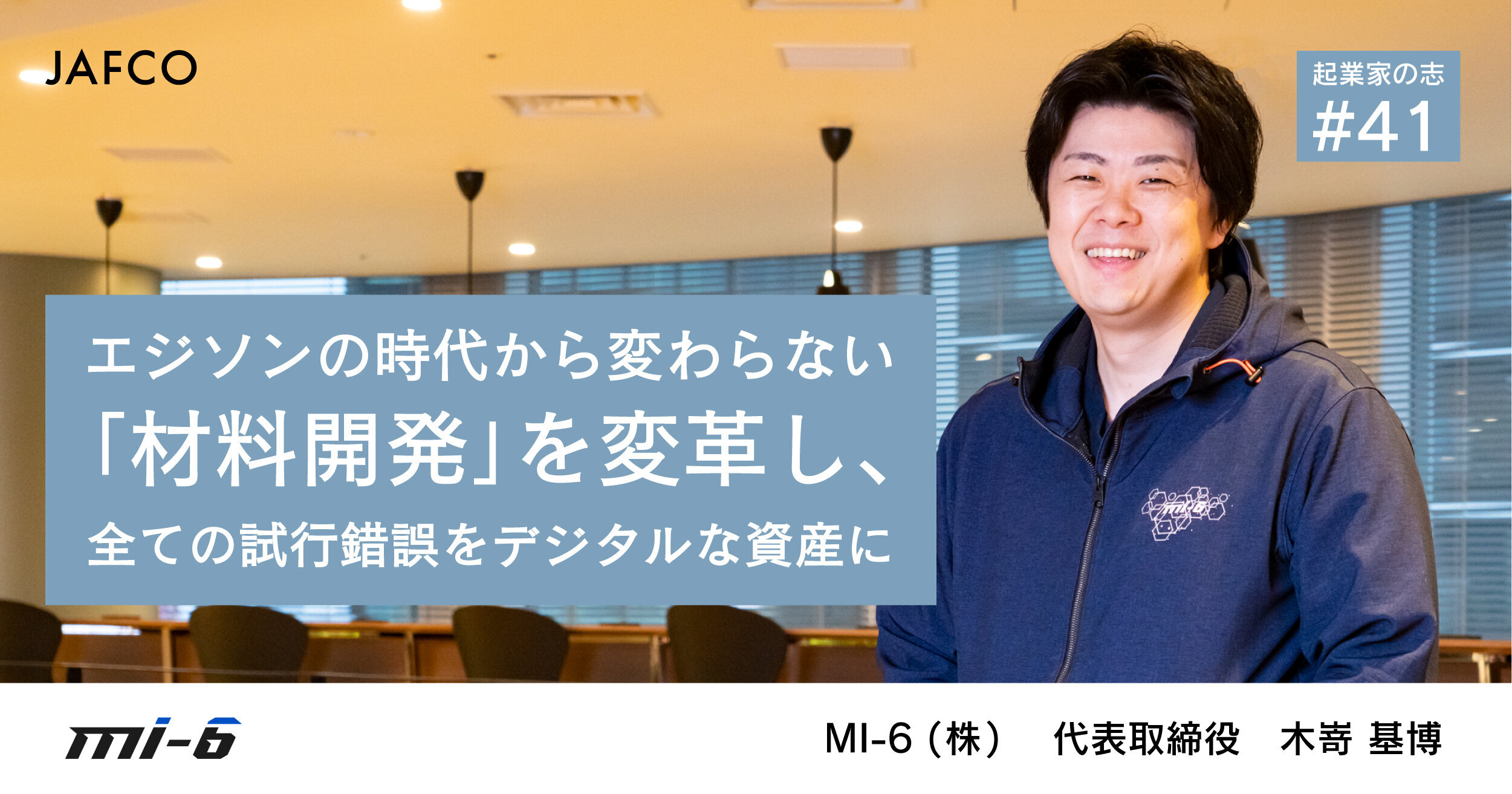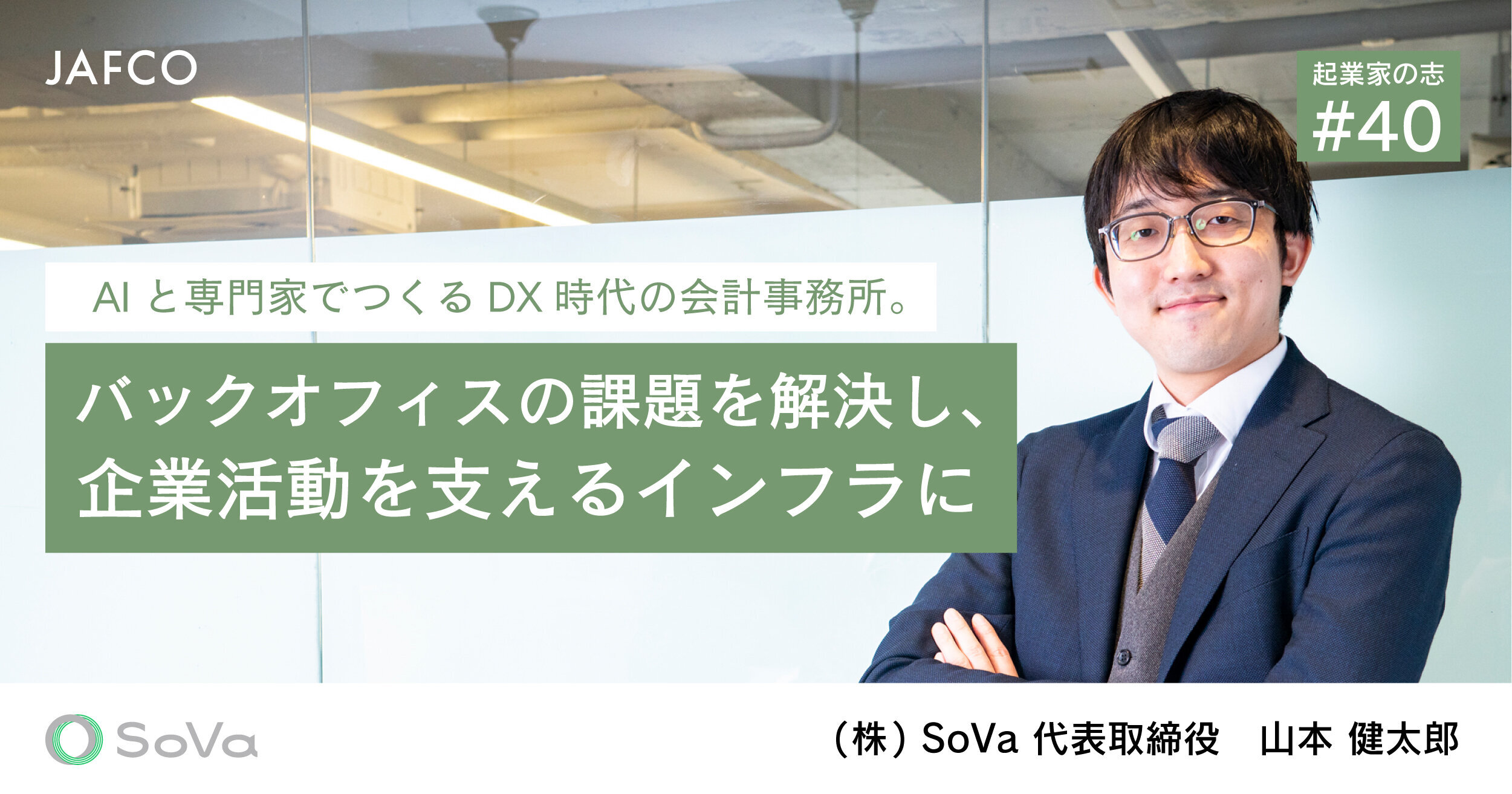"Entrepreneurial aspirations" to hear the background of deciding to start a business, the conflict until the business gets on track, and the desire to realize through the business.
In the 22nd meeting, we interviewed Mr. Shoji Izawa, the second president of a towel manufacturer founded in 1970, and the representative director of IZAWA TOWEL co.,ltd.
【profile】
IZAWA TOWEL co.,ltd. Representative Director Shoji Izawa
After working for an apparel company, joined Izawa Towel in 1989. The founder, Masami Izawa, passed away at a young age and Shoji Izawa took over the company as the second generation in 1997, when he was 33 years old and became the representative director. A game changer in the towel industry that continues to innovate by introducing ideas that were not found in the conventional towel industry, and leads Izawa Towel to the industry's top class companies.
[What's IZAWA TOWEL co.,ltd.]
Create a "global standard for towels" for the mass market.
There are many companies that manufacture and sell towels in Japan and overseas, but there is no industry standard towel in the world that says, "If you have a problem, you can definitely buy this towel." Consumers who have not come across a towel that suits their taste because the product range is wide and subdivided, even if it is called a "towel", from high-class towels that cost more than 5,000 yen per sheet to cheap towels at 100-yen shops. (= Towel refugees) is very common. Izawa Towel's mission is to continue to focus on usability and create a "global standard for towels", and we are always thoroughly pursuing "what is a towel that sells".
To succeed my father's company at the age of 33
-How did you see your father, an entrepreneur, when you were a child?
My father quit the towel company in Osaka and founded Izawa Towel when I was 6 to 7 years old. At that time, I was both my home and office, and I was always watching my father work up close, so I naturally thought, "I wonder if I will succeed someday."
-It was 1997 when I was actually appointed as the representative director. I was 33 years old.
After working for an apparel company, I joined Izawa Towel in my mid-20s, but when I was over 30, my father got sick and had lung cancer. In the turmoil that my family might disappear, the reality that I had to take over much earlier than I expected was imminent, and it was a difficult day. I learned a lot about work in the two years and a little before he passed away, and at the age of 33 I took over the second generation.
-What was the business situation of the company at that time?
Although small, management was stable. At that time, the towel industry occupied 70 % of the gift market, but my father was particular about making towels as practical products for the remaining 30 %, and although there is little room for growth, he will continue to do business steadily in a certain market. It was a management policy of going on.
When giving a towel to someone, I think that it is often selected based on criteria such as "famous brand", "luxury", and "with cute mascot embroidery" rather than the quality of the towel itself. You will choose one that costs money for packaging and wrapping. I think that is a very good world in terms of emotions, but if you pursue it, it will be difficult to pay attention to the performance of the fabric itself, such as "high water absorption" and "good touch". As a towel maker, my father felt uncomfortable there and continued to make practical towels from the consumer's point of view.
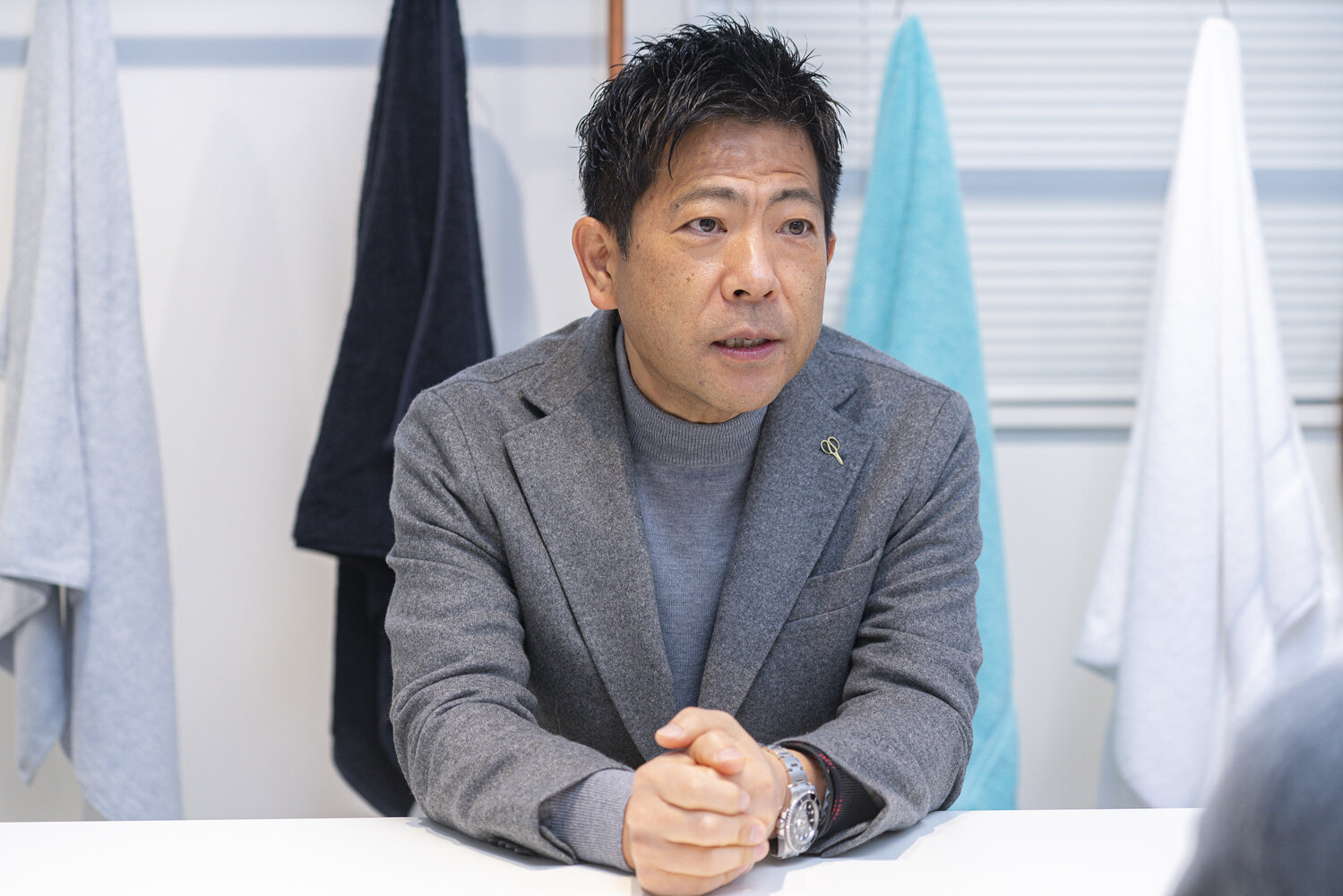
-I think there was a part where you became the second president and inherited your father's thoughts and efforts, and there was a part where you took on a new challenge yourself. Please tell us each.
In fact, the basis of what we are doing is almost the same as our predecessor. However, with the major changes in the distribution industry in 2000, we also needed to take the helm.
There are so many companies in the towel industry, about 1,000 when I took over. Although it has decreased considerably in recent years, there are still 300 companies. Although it is a compact management, each company was able to properly divide the towels in the large market. However, since the large retailers and wholesalers have been consolidated and the movement to improve product development and cost competitiveness has begun, major issues have emerged within our company. The customers were very limited.
At that time, the only customers were specific GMS and local supermarkets. In the midst of the major change in the reorganization of distribution, the color coding of manufacturers with whom we do business has already progressed, and we felt a sense of crisis that we would be swallowed as it is. We need to increase the variety of customers, reduce the dependence on sales per company, and expand to a scale that can have some influence on the market as a towel maker.
-What was the first step you started to steer?
I went to sell to a new customer anyway. Almost all business formats such as GMS, convenience stores, specialty stores, home improvement stores, etc., centered on major companies. But most of the time, I pay in advance. Since all of our business partners have already been decided, it is difficult to replace them unless they are well-known products. I learned a lot about how to make proposals, but in the end, there were no companies that could develop new businesses.
A market called "towels for workers" found from the edge of a cliff
-How did you overcome that situation?
As a result, it will be possible to do business with major convenience store companies, but before that, a big pinch will come. The shareholders of Company A, which was originally a major customer, changed, and the customers of Company A were gradually replaced by towel makers who have a relationship with the shareholders. I still remember the shock when the buyer of Company A said, "If you don't do your best, the number of transactions may be zero." At that time, the birth of a child also overlapped, and it became pitch black in front of me.
Of course, I made various proposals so that I could continue trading, but the situation did not improve because it was decided based on a big management decision. On the way home when I talked to the buyer when it was finally dangerous, I was so shocked that I couldn't move because I sat by the tavern there. However, when I finally arrived at the hotel where I was staying, I suddenly became calm and thought, "Let's write it down on paper." What have you done to your company A so far? When I wrote it down and looked at it objectively, I realized that I was so anxious that I was only proposing to myself, so I visited the buyer again at a later date and made an apology and re-suggestion.
You might be laughed at when you say this, but I think it was my father who kept me calm at that time. I couldn't see myself when I stopped thinking because of the shock, and said, "Write on a piece of paper and look at it objectively."
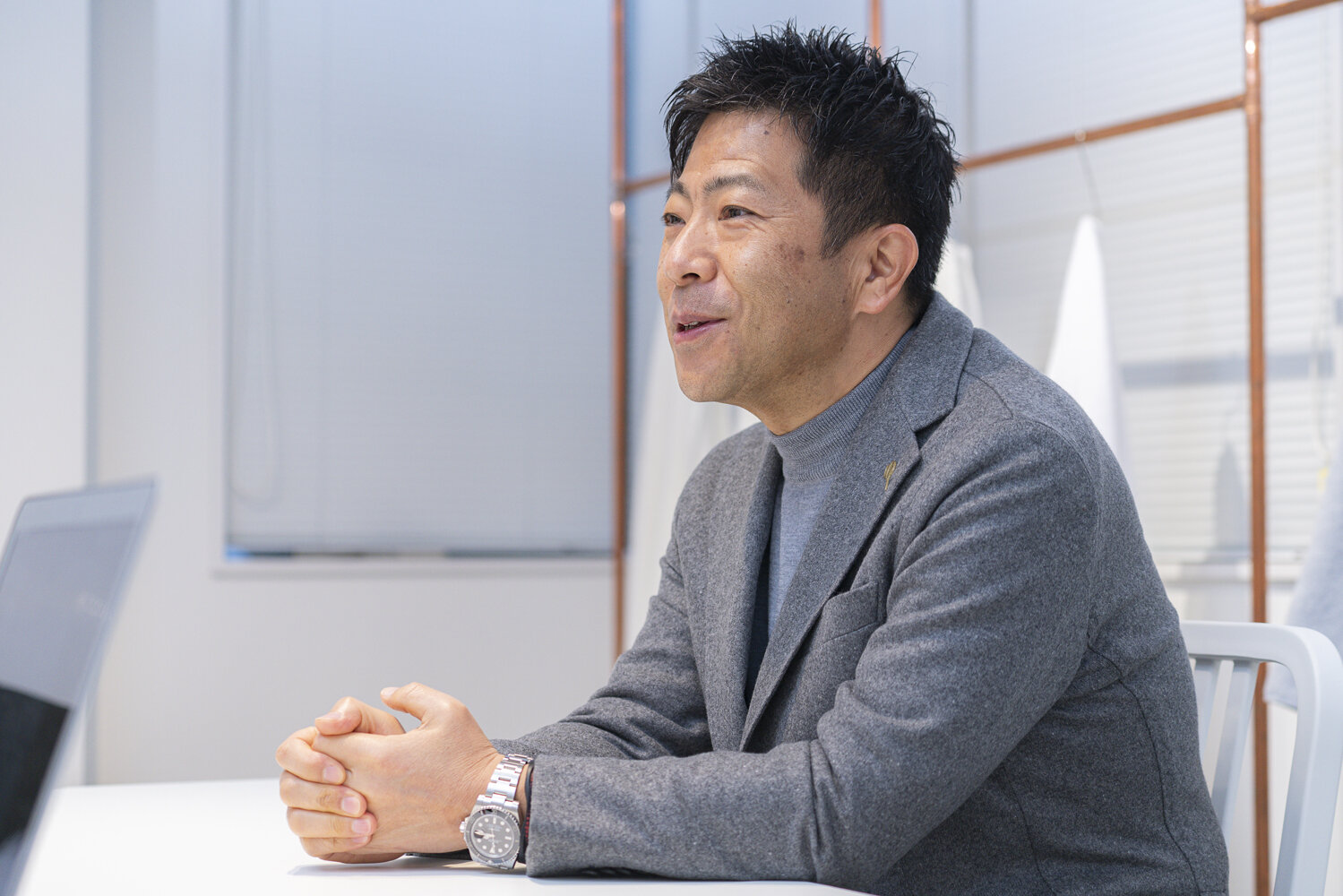
-Did you pass the re-suggestion?
At that time, although I escaped the worst, it is still a cliff. Company A decided to develop a sales floor for field workers and participated in the competition, but the result was no good.
However, that was the reason why I started to pay attention to the market called "towels for workers". Talking to a relative plasterer, he says that B brand workwear is a longing among workers. If so, I thought I could collaborate with Company B and tried to make a phone call, but the president couldn't take over. So I followed my distant relatives and managed to introduce the manager of a work clothes store that had a relationship with Company B, and had them negotiate a business talk with the president.
-It's a tremendous amount of action and patience.
But the reality wasn't sweet. To hear the story, the worker brought a prototype of a towel to wrap around his head when wearing a helmet, but he didn't see it at first. Even if I visit several times, the president's appearance does not change.
However, after several visits, I could see Seto Ohashi beautifully from Okayama, where Company B is located, so when I casually told that I was born in Osaka but my parents were from Kagawa, the color of the president's eyes changed. In fact, the president's roots are also in Kagawa, and he says, "If Kagawa's blood is flowing, you should be patient." Taking this opportunity, you can finally see the sample, and after many twists and turns, you will be able to trade on a sunny day. The collaborative towels have sold 30,000 pieces at work clothes stores nationwide, and have been featured in newspapers and magazines.
-The results there lead to transactions with a major convenience store company CC.
That's right. I remember that a merchandiser saw our article and contacted me, brought a lot of samples and visited the head office with a dreamy feeling. Since we were able to sell at company C, transactions with company A gradually returned, and for those in charge of towels at other major distribution companies, "we are dealing with company C = the supply system is in place." It was a certificate that I got the seed right for new transactions.
Making standard products for the towel industry
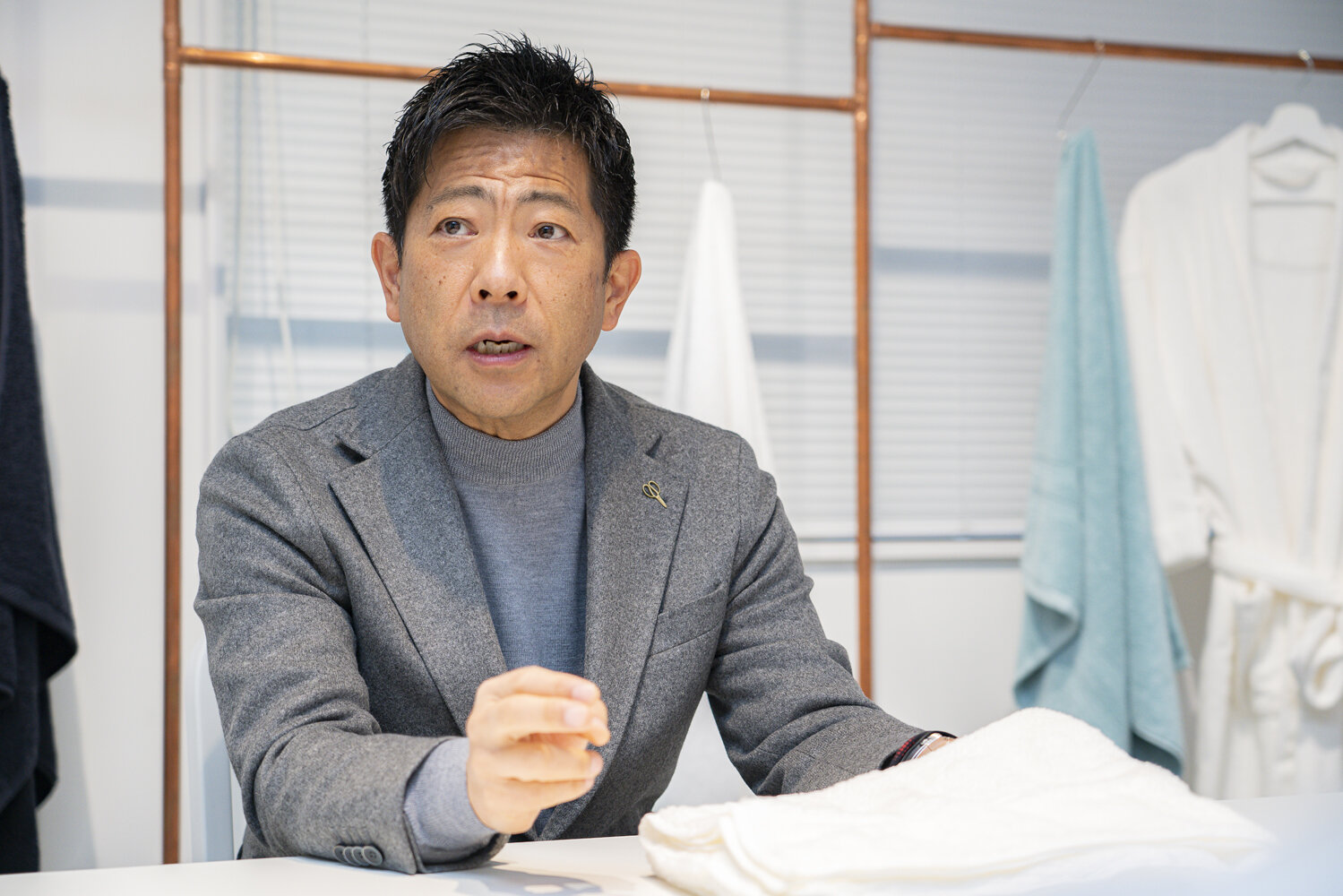
-The towel series jointly developed with Company C is also a hot topic on social media. The first release is in 2013, but are there any parts that have been updated since then?
Not only the raw materials, but also the spinning method is reviewed and renewed every time. If you pursue softness, towels tend to get fluffy and lose their durability. On the other hand, if you try to increase the water absorption, the softness will decrease. Worn-out and hardened towels absorb a lot of water, don't they? That is because the water absorption is increased by repeating washing and the oil content is blown off.
In other words, improving the quality of towels is a battle against the conflicting relationships of "water absorption," "feel," "durability," and "fluff removal." Any company can improve just one, but there is a high level of skill to improve two or three at the same time. We have that technology. Collaborative development with Company C requires 80 points or more for all items, so the renewal is improving the quality as a whole, not just one.
-Your R & D department, which is rare for towel makers, makes this possible. How did this department come about?
Originally, my home was a substitute for a lab, and I was doing my own research while repeatedly washing and drying towels at home. Eventually, analysis began using the measuring equipment of the Industrial Technology Center operated by Osaka Prefecture and Tokyo for small and medium-sized enterprises, and industry-academia collaboration with Shinshu University and Kyoto Institute of Technology to promote more specialized research. Also started. When conducting research with a university, it is necessary to formulate a research policy in-house, so we decided to set up an in-house laboratory as well.
Towels are for everyone at home, but no one has ever tried to research and improve the industry. Therefore, many volunteers gathered for our efforts. The digital microscopes and microscopes currently in the lab were also impressed by our thoughts by a major equipment manufacturer, who proposed research on the most suitable equipment for towel research.
The reason why we are able to produce hit products at convenience stores, retail stores, online shopping sites, etc., including the towel series jointly developed with Company C, is because we are making steady efforts to improve quality by conducting basic research every day. It is nothing but. The R & D department can be said to be the source of our growth.
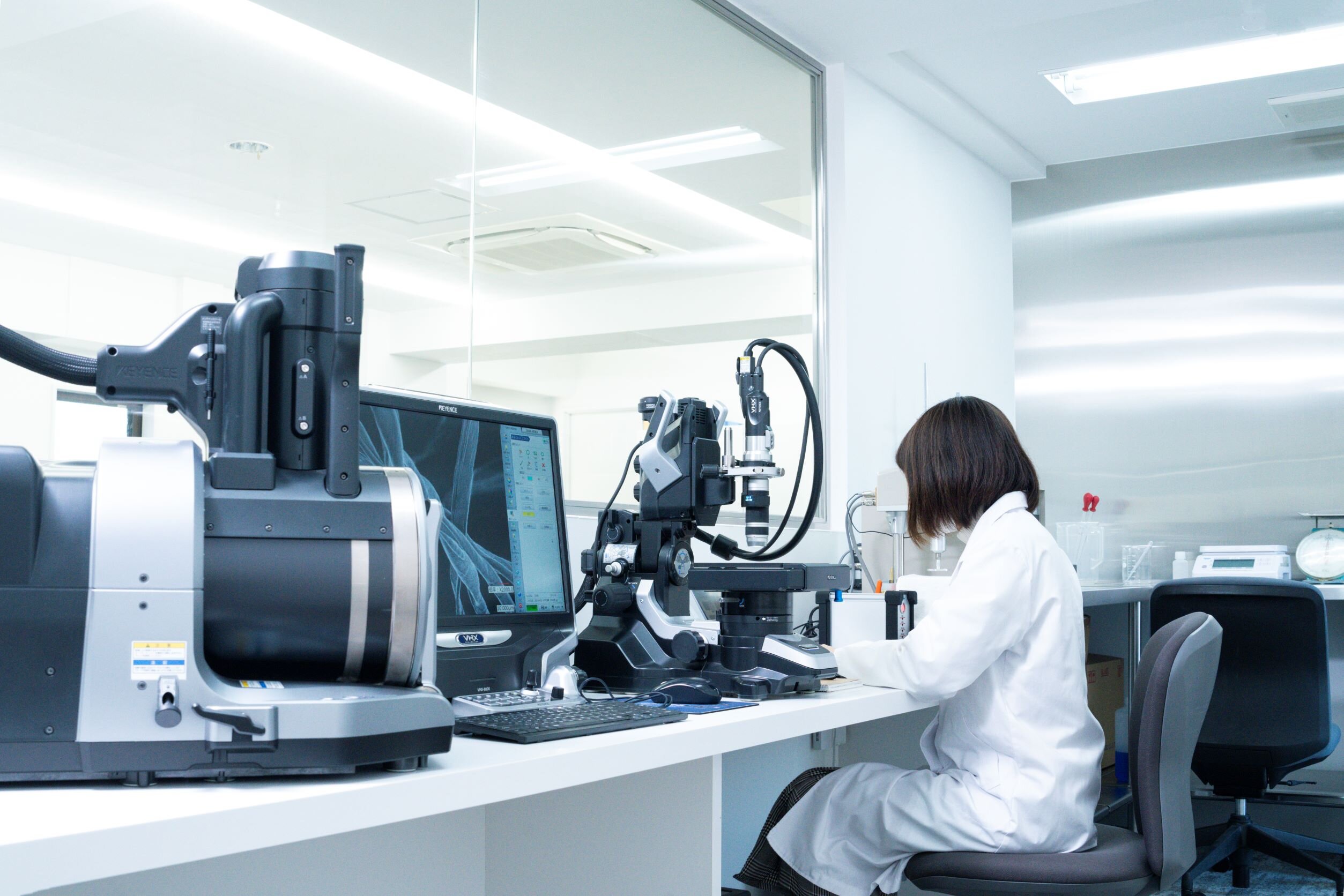
-In August 2021, we made a capital tie-up with JAFCO and made a new start. What was your purpose?
We have been planning to expand overseas for several years, and in 2020 we formed a business alliance with West Point Group, a major American home fashion company. When I consulted with a consulting company that supported me, "I want to go public," JAFCO introduced me.
The purpose of listing is not to expand the company. I want to make a standard product for the towel industry. For example, in the case of laundry detergent, there are products that are the industry standard that everyone knows. Based on that, I think that I judge "high" and "cheap", and enjoy the luxury of "buying a slightly better detergent than usual". However, there is no product in the towel that says "If you buy this, you can rest assured." Many people will try various products and find one that suits them. In other words, I think it leads to "difficulty in buying" for consumers.
This is simply a lack of effort in the towel industry. Despite being able to make famous products by taking 20 % of the market share, no one has been aiming for it by protecting their own company. If competition does not occur, the industry itself will not improve. In order to break through that situation, raise credibility and name recognition, and set the standard for towels, we needed to aim for a listing that no one in the industry has achieved. If listed, it will also be a "certificate of security" when dealing or forming alliances with overseas companies.
-Where was the deciding factor in choosing JAFCO as your partner?
Of the more than 20 companies I met in three years, JAFCO's Mizutani felt the strongest commitment to listing and the "concentration". I think it is normal to think about risk diversification when aiming for listing, but Mr. Mizutani formulated the strategy for listing most clearly, and when I asked "What if I could not list?", "President If you feel a little uneasy, stop investing. " He is the only one who has made such a reply. I'm aiming to go public for the sake of the world, so don't let your thoughts go halfway. For that reason, I thought that JAFCO's Mizutani was the only partner.
-Did there be any major changes in your company or your situation before and after the capital tie-up?
The role of the company has been clarified. IPOs require specialized skills and experience, so it is difficult to complete them in-house unless you are a large, well-organized company. By leaving the IPO to JAFCO and properly organizing the division of roles among employees, I am able to concentrate more on business growth.
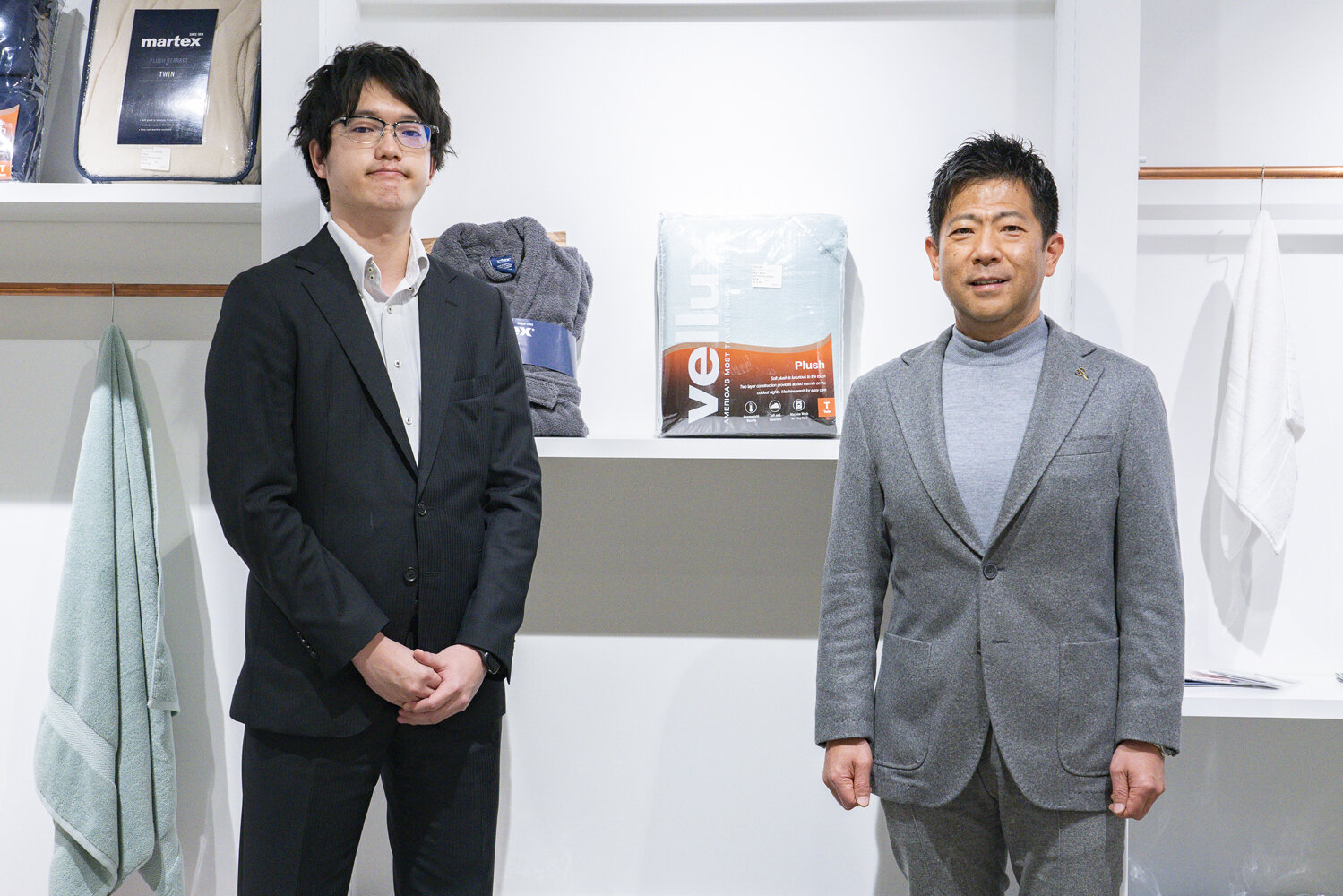
Mr. Izawa and JAFCO Principal Taishi Mizutani (left)
I want you to look at the collective market of the world
-Please tell us about your future efforts to create standard products for the towel industry.
The size of the domestic market for towels is 160 billion yen at the selling price and 100 billion yen at our shipping price. It will be listed by 2025, and by that time it will have a 20 % share in Japan and have established a standard, so next we will aim to become the standard in the world. Towels are said to be used by 7 billion people worldwide, and the market size is 1 trillion yen. In order to sell 20 % of that amount, that is, 200 billion yen, we would like to expand the scale while acquiring overseas peers who agree with our idea. If you do so, there will surely be competition that will follow us, so I think that the products will evolve further and the industry as a whole will become more exciting and very interesting.
-Mr. Izawa's idea is from the consumer's point of view and the consumer's point of view.
By the time cotton is purchased, processed into towels, wholesaled, and delivered to consumers, various margins and taxes will be added. The sales of us manufacturers, manufacturing factories, and distribution companies are on the order of 100 million to trillion yen, but the salaries of consumers are several million yen. With that in mind, the amount of money consumers are paying is enormous. We must not ignore consumers who buy products with such strong action and judgment. Providing high-quality products at a reasonable price by adjusting the added amount. I think that what every industry can do must be taken for granted in the towel industry.
-Finally, could you give some advice or encouragement to entrepreneurs?
In the future, the barrier between countries will disappear, and the word global will become obsolete. Unfortunately, Japan is being left behind in the world. I have come here thanks to the people who worked hard during the period of high economic miracle, but with this COVID-19 pandemic, I started from 1 and the economy is still not returning to Japan.
That is why it is better for those who start a business from now on to start with no borders or nationalities. It is not the idea of "transmitting from Japan" or "because it is evaluated in Japan, it will be evaluated in the world", but from the beginning, we are looking at the collective market of the world. I want you to do your best in the world as an earthling, not as a Japanese.
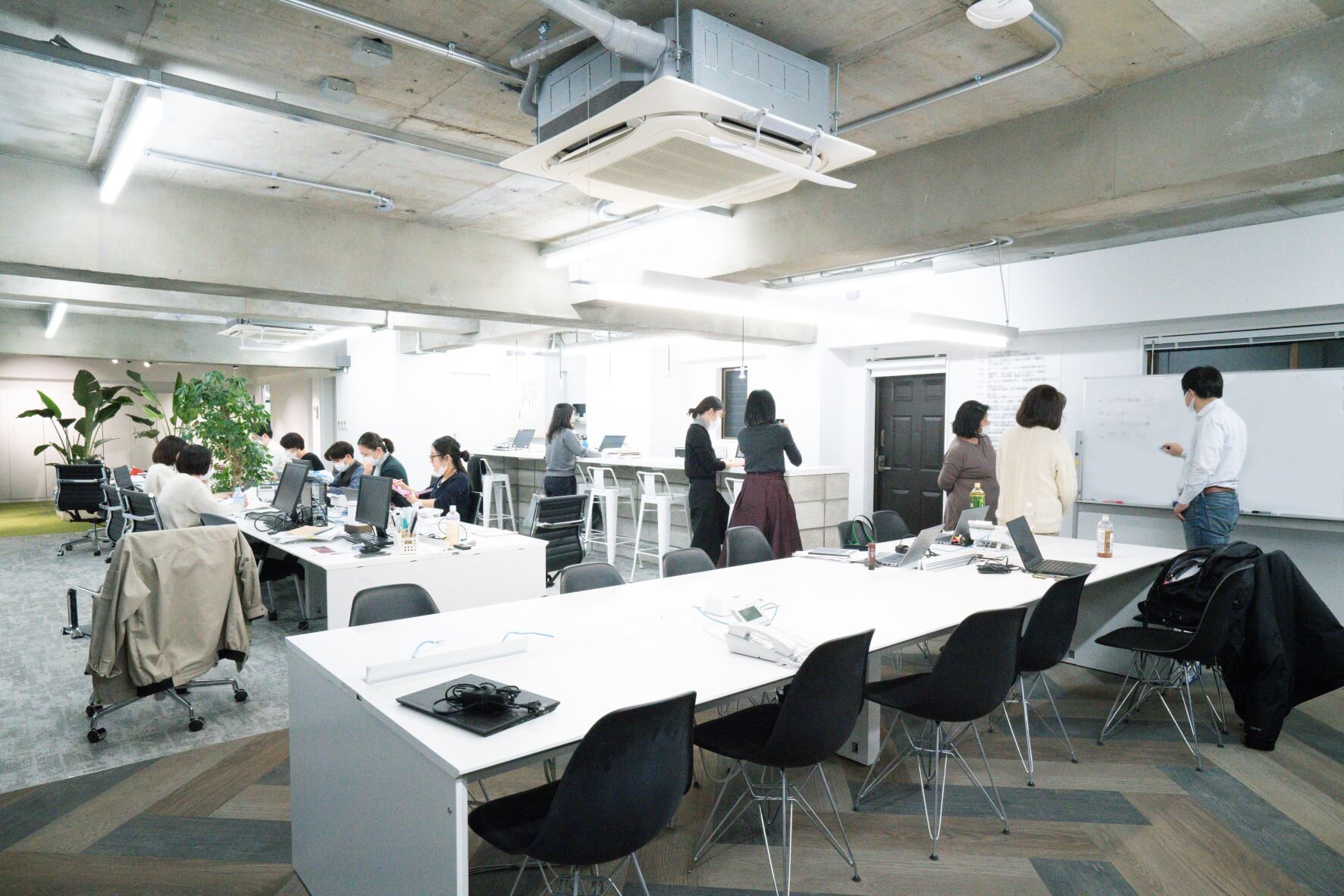
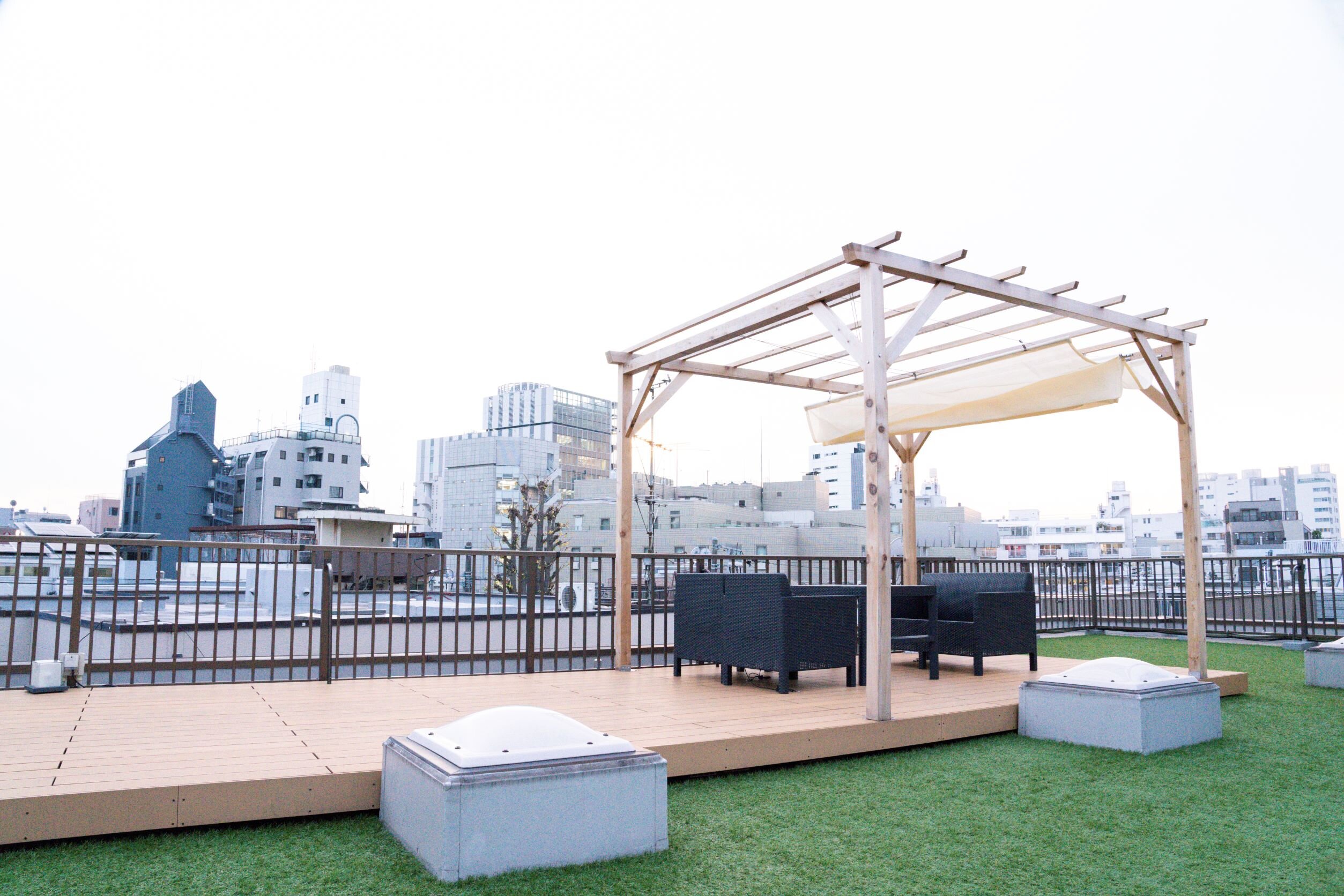
Headquarters office that is lively with young employees. There is also a space on the roof that can be used for meetings.

